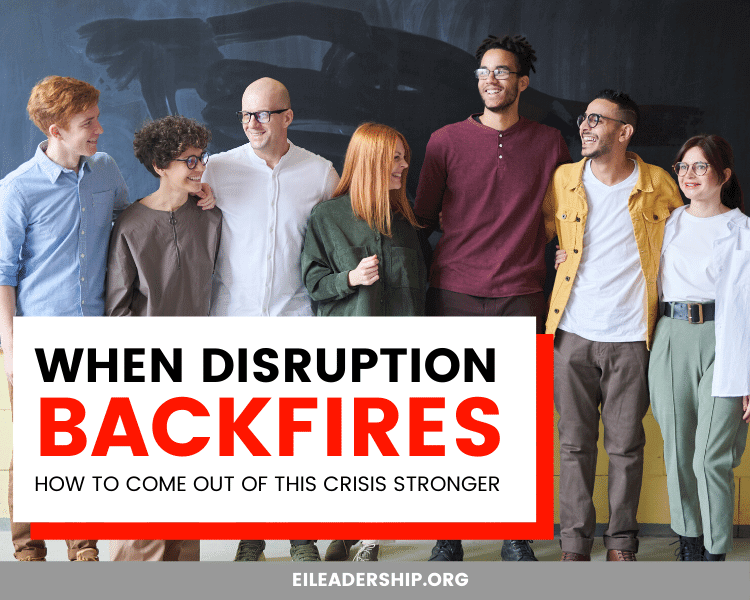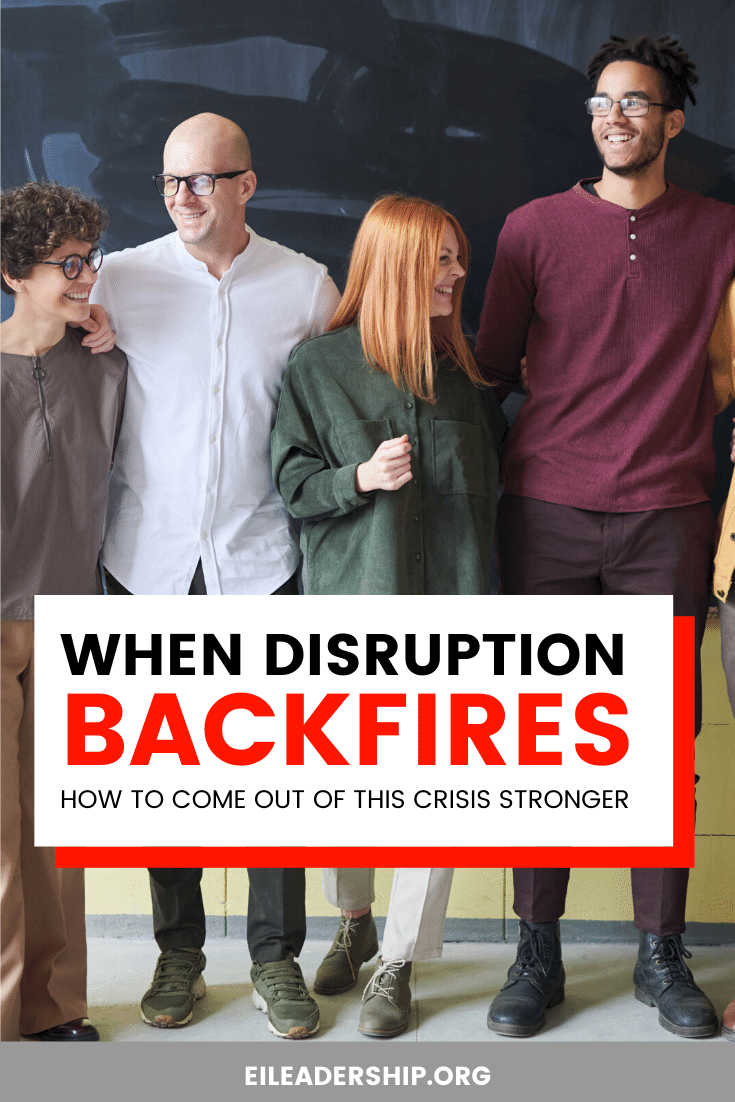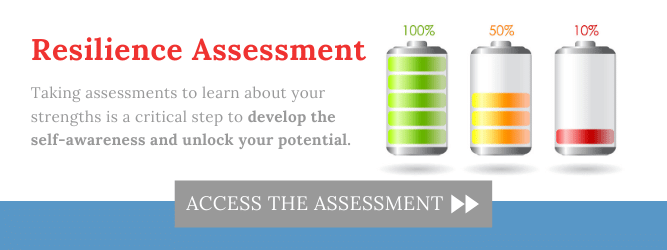
When Disruption Backfires: How to Come Out of this Crisis Stronger
In graduate school I studied the impact of chaotic conditions on performance. In many ways it reminds me of what we are going through today with this massive disruption and uncertainty. No one can plan for disruption; you have to be ready for what shows up. This requires a unique perspective.
What I learned from my study was optimism and grit were key characteristics in those people who successfully navigated the disruption. Any type of change can trigger the primitive survival instinct of the flight or fight reaction limiting one’s perspective. When this reaction goes unchecked, one quickly slides into a hopeless, helpless and negative outlook. This is the nature of the unchecked stress reaction. When survival is your only goal, there are limited options.
Optimism is your secret weapon in times of crisis. And if you do not regularly practice it, disruption on this massive scale can catch you off guard.
Optimism is more than the opposite of pessimism. It is a viewpoint that includes a realistic assessment of what is happening and the confidence in oneself that you will find a way to get through this. Knowing the facts about what is going on, without making it better or worse than it really is, requires you know yourself. Are you aware of what is going on with you and what emotions might be clamoring for your attention? Are you focused on the problem or the solution?
Pessimists view the worst outcomes first and expect them to happen. They feel that whatever happens will be permanent. This is how disruption backfires. Without preparation to handle the triggers that change, and uncertainty bring, you can get stuck in a hopeless/ helpless mindset.
An optimistic attitude recognizes there are challenges, and while you are aware of the worst possible outcome, you do not expect them to happen.
Optimism is one of the traits that hinge the heavy door of consistent leadership performance and success.
Fortunately, optimism is part of a mindset that can be learned. This is the good news since a recent study found pessimism a substantial risk factor in coronary disease. In an 11 year study, over 2000 men and women were followed, and those at the top of the scale in pessimism were more than 2 times likely to die from CHD.1
With what we also know about neuroplasticity, the more you think a certain way, the more you will think this way! This becomes your default mode. Developing an optimistic attitude can also become your default mode once you learn to tune into you – how are you impacted by stress and how does it affect your thinking.
Do you first think about what could go wrong and feel hopeless, or do you think about how to mitigate the challenge, knowing you can get through it?
Can you really shift from pessimistic to optimistic? It depends. In order to make a change in attitude and perspective, there has to be self-awareness and a desire to make the change. Being self-aware is one of the most cited characteristics of a great leader. And I might add, it contributes to our ability to be happy.
Attitude is perhaps your biggest asset, or liability, in professional and personal life.
Make a decision to increase your self-awareness. Think about your own performance and or career – are you moving ahead fast enough? Or do crisis’ and other disruptions backfire and end up holding you back?
You can increase your self-awareness with assessments, coaching, keeping a journal to name a few strategies. What would you like to do in your career that you have not been able to do?
One of the assessments that is immensely helpful, especially right now, in the midst of this major disruption, is the Resilience Assessment also called the HRG: Hardiness Resilience Gauge. If you want to see where you fall in 3 different categories, this assessment will provide your baseline and show you how to develop greater resilience. We have a self-paced course available after taking the assessment to further develop those skills to manage change and uncertainty with confidence.
Disruption backfires when there is no positive action to move you ahead. Those who take quick action end up the most successful.
We want to reward you for taking action. Click below for a great offer to take the assessment and the course.
Did you enjoy this article? Pin it so that others may enjoy it too!

1 Mikko PänkäläinenEmail author, Tuomas Kerola, Olli Kampman, Markku Kauppi and Jukka Hintikka Pessimism and risk of death from coronary heart disease among middle-aged and older Finns: an eleven-year follow-up study. BMC Public Health, BMC series, DOI: 10.1186/s12889-016-3764-8

